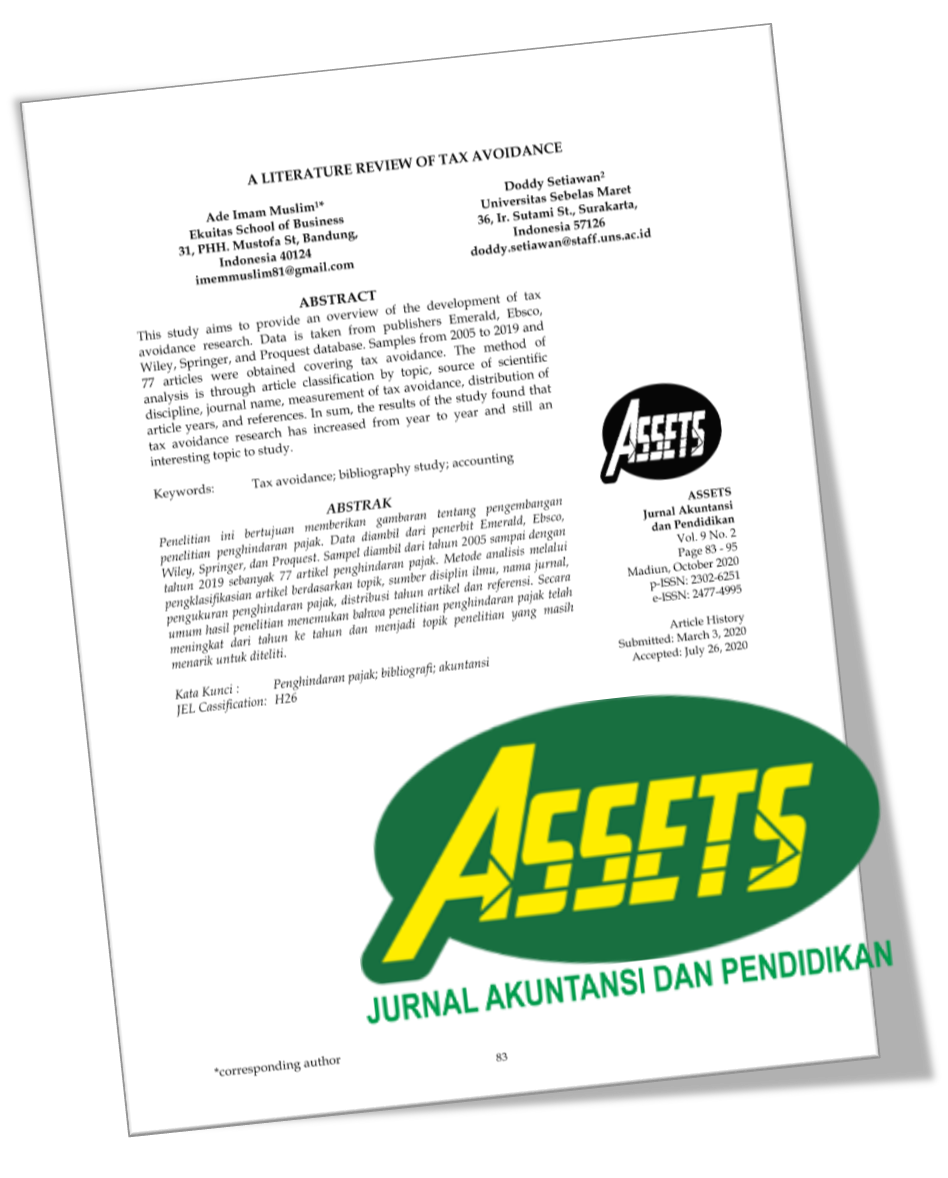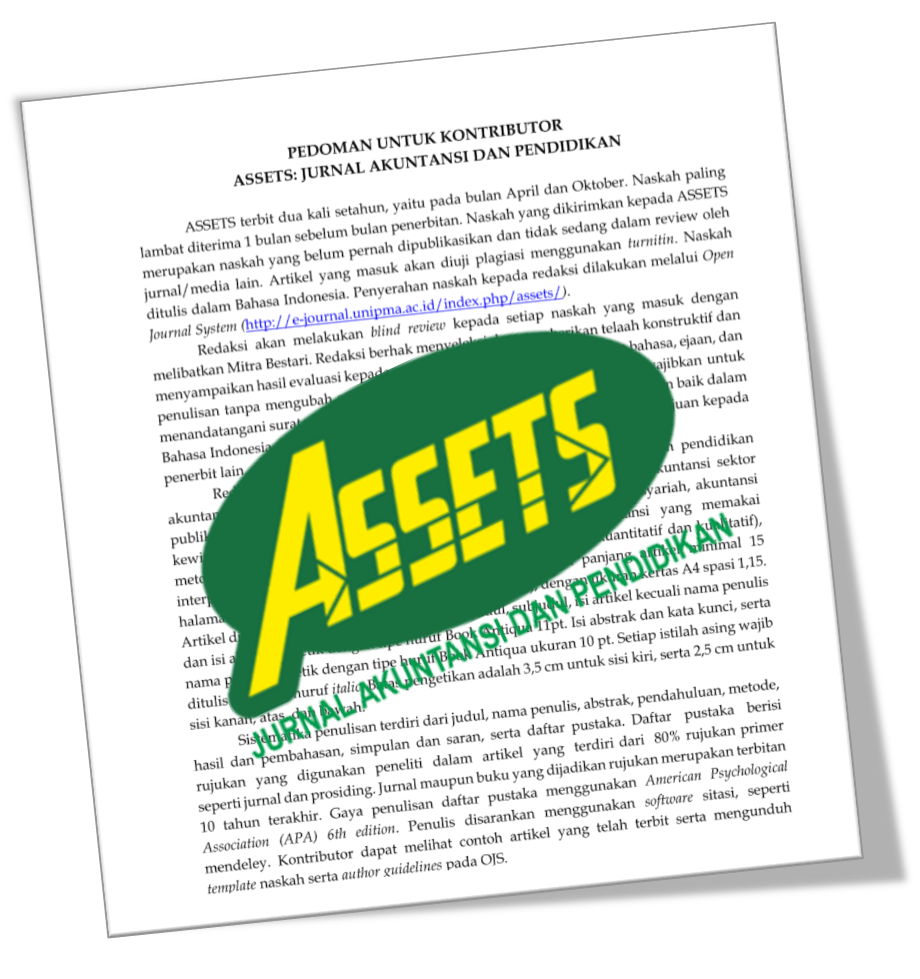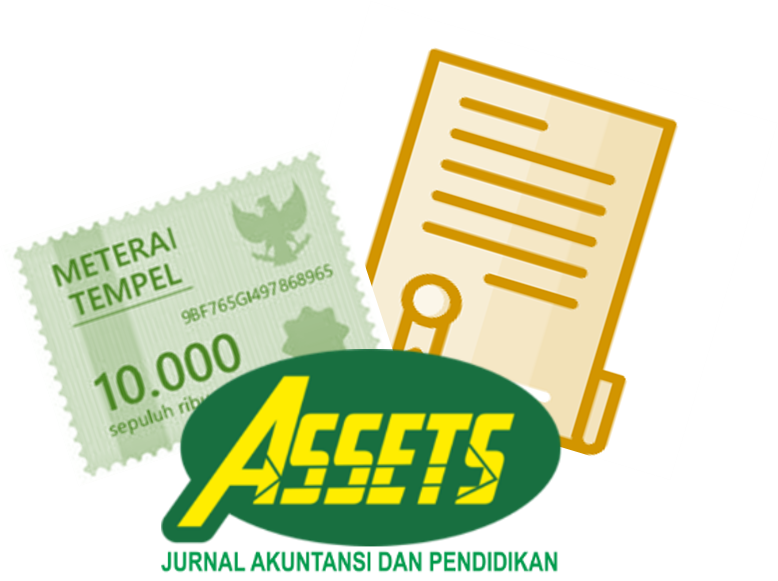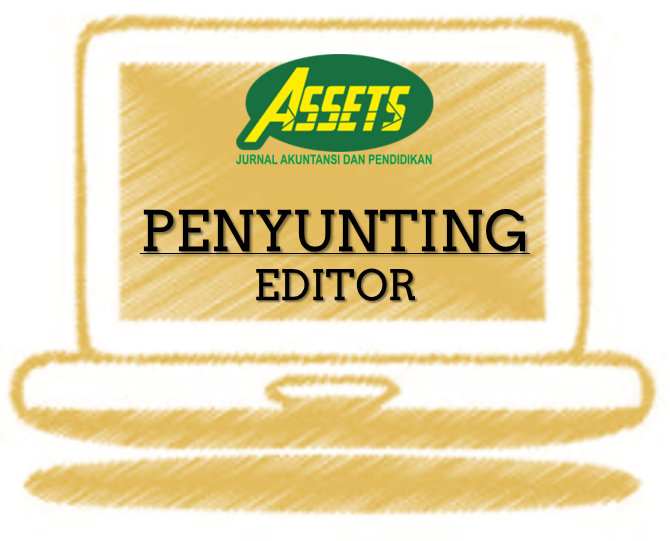Tazkiyah: Metodologi Rekonstruksi Akuntansi Pertanian
DOI:
https://doi.org/10.25273/jap.v8i2.4656Keywords:
Tazkiyah, Kesucian, Akuntansi Pertanian, Pertumbuhan, Holiness, Agricultural Accounting, GrowthAbstract
ABSTRAK
Artikel ini bertujuan mengonstruksi metodologi untuk memurnikan akuntansi pertanian kembali pada fitrah kesuciannya sehingga dapat menempati strata tertinggi bersama tulisan dan angka, sebagaimana kemunculan pertama kalinya di masa revolusi pertanian 12.000 tahun lalu. Konstruksi metodologi pemurnian akuntansi dilakukan melalui telaah kesejarahan pemikiran Ibnu Khaldun dan konsep pemurnian dalam Islam. Hasil konstruksi menunjukkan bahwa metodologi tazkiyah bersubstansi nilai dinamis berkeadilan bagi individu dan masyarakat serta lingkungan alam, dengan cara melalui penyucian terus-menerus. Temuan konstruksi juga menunjukkan bahwa kesucian akuntansi telah hilang dan tersisih sejak Revolusi Industri yang berorientasi materi dan pertumbuhan (ekonomi). Praksis akuntansi tanpa kesucian mewujud dalam standar IFRS dan PSAK di Indonesia hingga abad 21 berkolaborasi dengan Revolusi Industri 4.0.
ABSTRACT
This article aims to construct a methodology to refine agricultural accounting back to its nature of holiness so that it can occupy the highest strata along with writing and numbers, as it first appeared during the agricultural revolution 12,000 years ago. The construction of the accounting refinement methodology is carried out through the historical study of Ibn Khaldun's thought and the concept of purification in Islam. The results of the construction show that the tazkiyah methodology has a dynamic value of justice for individuals and communities and the natural environment, by means of continuous purification. The construction findings also show that the sanctity of accounting has been lost and marginalized since the material revolution and growth (economic) orientation. Accounting practices without holiness embodied in IFRS and PSAK standards in Indonesia until the 21st century in collaboration with the Industrial Revolution 4.0.
Downloads
References
Anonim. (2018). Situs Gunung Padang, Misteri Pengubah Sejarah Dunia. Retrieved May 27, 2019 from https://www.cnnindonesia.com/teknologi/20181207192748-199-351979/situs-gunung-padang-misteri-pengubah-sejarah-dunia.
Armstrong, K. (2011). Masa Depan Tuhan: Sanggahan Terhadap Fundamentalisme dan Ateisme. Penerbit Mizan. Bandung.
Armstrong, K. (2016). Fields of Blood: Mengurai Sejarah Hubungan Agama dan Kekerasan. Terjemahan. Mizan. Bandung
Beekum, R.I. (2004). Etika Bisnis Islami. Terjemahan Pustaka Pelajar. Yogyakarta. Bell 1978;
Bryer, R. A. (2000a). The history of accounting and the transition to capitalism in England. Part one: theory. Accounting, Organizations and Society. 25, 131-162
Bryer, R. A. (2000b). The history of accounting and the transition to capitalism in England. Part two: evidence. Accounting, Organizations and Society. 25, 327-381
Bryer, R. A. (2006). The Genesis of the Capitalist Farmer: Towards a Marxist Accounting History of the Origins of the English Agricultural Revolution. Critical Perspectives on Accounting. 17(4):367-397
Carey, P. (2016). Kuasa Ramalan: Pangeran Diponegoro dan Akhir Tatanan Lama di Jawa, 1785-1855. Jilid 1. Terjemahan. Penerbit KPG. Jakarta.
Carrier, JG (ed).2005. A Handbook of Economics Anthropology. Edward Elgar. USA.
Chwastiak, M. (2008). Rendering Death and Destruction Visible: Counting the Costs of War. Critical Perspectives on Accounting. 19(5):573-590
Chwastiak, M., G. Lehman. (2008). Accounting for War. Accounting Forum. 32. pp 313-326.
Chomsky, N. (2016). Pirates and Emperor. Pluto Press. London.
Crawford, NC. (2016). US Budgetary Costs of Wars through 2016: $4.79 Trillion and Counting: Summary of Costs of the US Wars in Iraq, Syria, Afghanistan and Pakistan and Homeland Security. Costs of War. Watson Institute International & Public Affairs. Brown University.
Diamond, J. (2012). The World Until Yesterday. Penguin Books. New York.
Diamond, J. (2014). Collapse: Runtuhnya Peradaban-peradaban Dunia. Terjemahan. Penerbit KPG. Jakarta.
Ezzamel, M. (1997). Accounting, Control and Accountability: Preliminary Evidence from Ancient Egypt. Critical Perspectives on Accounting Vol. 8, 563-601.
Friedman, M. (2016). Thank You for Being Late: An Optimist's Guide to Thriving in the Age of Accelerations. Farrar, Straus and Giroux.
Funnell, W. (2001). Government By Fiat. UNSW Press. Sydney.
Gambling, T., dan R.A.A. Karim. (1991). Business and Accounting Ethics in Islam. Mansell Publishing Limited. London - New York.
Harari, Y. N. (2015). Homo Deus: a Brief History of Tomorrow. Harvill Secker.
Harty, I. (2018). UNESCO Beri Status Warisan Dunia Pada Kuil Kuno Turki. Retrieved May 27, 2019 from https://mediaindonesia.com/read/detail/169609-unesco-beri-status-warisan-dunia-pada-kuil-kuno-turki.
Kurniawan, R., Mulawarman, A. D., & Kamayanti, A. (2014). Biological Assets Valuation Reconstruction: A Critical Study of IAS 41 on Agricultural Accounting in Indonesian Farmers. Procedia - Social and Behavioral Sciences, 164(August), 68–75. https://doi.org/10.1016/j.sbspro.2014.11.052
Ibn Khaldun. 2001. Muqaddimah. Terjemahan. Cetakan Ketiga. Pustaka Firdaus. Jakarta.
Lieber, A. E. (1968). Eastern Business Practices and Medieval European Commerce. The Economic History Review. Vol xxi (2) pp. 230-243.
Madkoer, I. (1986). Filsafat Islam dan Renesans Eropa. Dalam Buku: Sumbangan Islam Kepada Ilmu dan Kebudayaan. Editor: M. Khalafallah Ahmed. Terjemahan Penerbit Pustaka. Bandung.
Mouck, T. (2004), Ancient Mesopotamian accounting and human cognitive evolution, Accounting Historians Journal, Vol. 31 No. 2, pp. 97-124.
Mulawarman, A.D. (2006). Menyibak Akuntansi Syariah: Rekonstruksi Teknologi Akuntansi Syariah dari Wacana ke Aksi. Penerbit Kreasi Wacana. Yogyakarta.
Mulawarman, A.D. (2011). Akuntansi Syariah: Teori, Konsep dan Laporan Keuangan. Penerbit E-Publishing dan Bani Hasyim Press. Jakarta - Malang.
Mulawarman, A.D. (2014). On Holistic Wisdom Core Datum Accounting: Shifting from Accounting to Value Added Accounting. International Journal of Accounting and Business Society. Vol. Vol. 22, No. 1, pp. 69-92.
Mulawarman, A.D. (2016). 2024 Hijrah untuk Negeri: Kehancuran atau Kebangkitan (?) Indonesia dalam Ayunan Peradaban. Rumah Peneleh Seri Media dan Literasi. Malang-Jakarta.
Mulawarman, A.D., A. Kamayanti. (2018). Towards Islamic Accounting Anthropology: How secular anthropology reshaped accounting in Indonesia. Journal of Islamic Accounting and Business Research, Vol. 9 Issue: 4, pp.629-647,
Munandar, A.A. (2012). Mitos dan Peradaban Bangsa. Prosiding the 4th International Conference on Indonesian Studies: Unity, Diversity, and Future. FIB, UI. Bali, 9-10 Februari.
Nasr, S.H. (1989). Knowledge and the Sacred. State University of New York Press.
Ormerod, P. (1999). The Dead of Economics. Terjemahan. Penerbit KPG. Jakarta.
Sagan, C. (2014). The Demon-Haunted World: Sains Penerang Kegelapan. Terjemahan. Kelompok Penerbit Gramedia. Jakarta.
Santos, A. (2010). Atlantis The Lost Continent Finaally Found: Indonesia Ternyata Tempat Lahir Peradaban Dunia. Terjemahan. Penerbit Ufuk Press. Jakarta.
Sardar, Z. (1987). Masa Depan Islam. Terjemahan Penerbit Pustaka, Bandung.
Sardar, Z. (1996). Beyond Development: An Islamic Perspective. The European Journal of Development Research. Vol. 8:2, 36-55.
Setyorini, T. (2014). Gobekli Tepe, situs prasejarah di Turki yang berliput misteri. Retrieved May 27, 2019 from https://www.merdeka.com/gaya/gobekli-tepe-situs-prasejarah-di-turki-yang-berliput-misteri.html.
Soll, J. (2014). The Reckoning: Financial Accountability and the Rise of Fall of Nations. Basic Books New York.
Sombart, W. (1913). The Jews and Modern Capitalism. Translated with Notes by M. Epstein. EP Dutton & Company. New York.
Stiglitz, J., L. Bilmes. (2008). The Three Trillion Dollar War: The True Cost of The Irac Conflict. W. W. Norton & Company. USA.
Weber, M. (1930). The Protestant Ethics and the Spirit of Capitalism. Routledge, London and Newyork.
Yamey, B.S. (1949). Scientific Bookkeeping and the Rise of Capitalism. The Economic History Review, 1(2), 99–113.
Yamey, B.S. (1964). Accounting and the Rise of Capitalisme: Further Notes on a Theme by Sombart. Journal of Accounting Research. 2(2), 117-136.
Zaid, O.A. (2004). Accounting Systems and Recording Procedures in the Early Islamic State. The Accounting Historians Journal. 31(2), 149-170.
Downloads
Published
Issue
Section
License
Perjanjian Lisensi dan Hak Cipta
Saat mengirimkan naskah ke jurnal, penulis menyatakan bahwa:
- Mereka diberi wewenang oleh rekan penulisnya untuk masuk ke dalam perjanjian ini.
- Karya yang dimaksud belum pernah diterbitkan secara resmi sebelumnya, kecuali dalam bentuk abstrak atau sebagai bagian dari kuliah, resensi, tesis, atau overlay jurnal yang diterbitkan.
- Karya yang dimaksud tidak sedang dipertimbangkan untuk diterbitkan di tempat lain,
- Publikasi karya yang dimaksud telah disetujui oleh semua penulis dan oleh otoritas yang bertanggung jawab - secara tahu sama tahu atau eksplisit - dari lembaga tempat pekerjaan itu dilakukan.
- Mereka mengamankan hak untuk mereproduksi materi apa pun yang telah diterbitkan atau dilindungi hak cipta di tempat lain.
- Mereka menyetujui lisensi dan perjanjian hak cipta berikut.
Hak Cipta
Penulis yang menerbitkan dengan ASSETS: Jurnal Akuntansi dan Pendidikan menyetujui persyaratan berikut:
- Penulis mempertahankan hak cipta dan memberikan jurnal hak publikasi pertama dengan karya yang secara bersamaan dilisensikan di bawah Lisensi Atribusi Creative Commons (CC BY-SA 4.0) yang memungkinkan orang lain untuk berbagi karya dengan pengakuan kepenulisan karya dan publikasi awal di jurnal ini.
- Penulis dapat masuk ke dalam pengaturan kontrak tambahan yang terpisah untuk distribusi non-eksklusif dari versi jurnal yang diterbitkan dari karya tersebut (misalnya, mempostingnya ke repositori institusional atau menerbitkannya dalam sebuah buku), dengan pengakuan publikasi awalnya di jurnal ini.
- Penulis diizinkan dan didorong untuk memposting karya mereka secara daring (misalnya di repositori institusional atau di situs web mereka) sebelum dan selama proses pengiriman, karena dapat menghasilkan pertukaran yang produktif, serta kutipan lebih awal dan lebih besar dari karya yang diterbitkan.
License and Copyright Agreement
In submitting the manuscript to the journal, the authors certify that:
- Their co-authors authorize them to enter into these arrangements.
- The work described has not been formally published before, except as an abstract or part of a published lecture, review, thesis, or overlay journal.
- That it is not under consideration for publication elsewhere,
- That its publication has been approved by all the author(s) and by the responsible authorities – tacitly or explicitly – of the institutes where the work has been carried out.
- They secure the right to reproduce any material already published or copyrighted elsewhere.
- They agree to the following license and copyright agreement.
Copyright
Authors who publish with ASSETS: Jurnal Akuntansi dan Pendidikan agree to the following terms:
- Authors retain copyright and grant the journal right of first publication with the work simultaneously licensed under a Creative Commons Attribution License (CC BY-SA 4.0) that allows others to share the work with an acknowledgment of the work's authorship and initial publication in this journal.
- Authors can enter into separate, additional contractual arrangements for the non-exclusive distribution of the journal's published version of the work (e.g., post it to an institutional repository or publish it in a book), with an acknowledgment of its initial publication in this journal.
- Authors are permitted and encouraged to post their work online (e.g., in institutional repositories or on their website) before and during submission, as it can lead to productive exchanges and earlier and more extraordinary citations of published work.

ASSETS: Jurnal Akuntansi dan Pendidikan is licensed under a Creative Commons Attribution-ShareAlike 4.0 International License.










